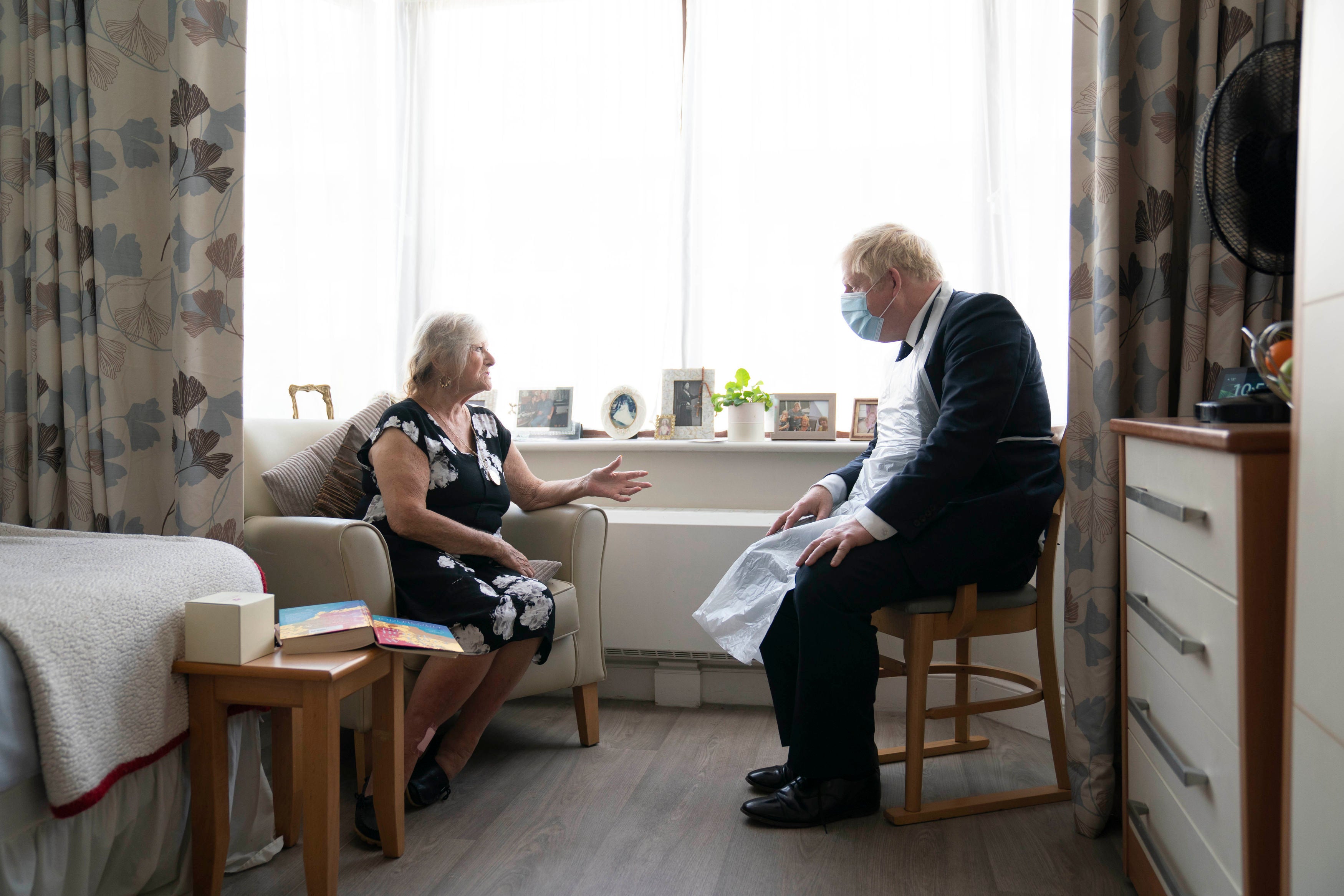Rishi Sunak urged to spell out inequalities created by government’s plan to cap care costs
Experts warn that plan favours affluent south over poorer areas

Your support helps us to tell the story
From reproductive rights to climate change to Big Tech, The Independent is on the ground when the story is developing. Whether it's investigating the financials of Elon Musk's pro-Trump PAC or producing our latest documentary, 'The A Word', which shines a light on the American women fighting for reproductive rights, we know how important it is to parse out the facts from the messaging.
At such a critical moment in US history, we need reporters on the ground. Your donation allows us to keep sending journalists to speak to both sides of the story.
The Independent is trusted by Americans across the entire political spectrum. And unlike many other quality news outlets, we choose not to lock Americans out of our reporting and analysis with paywalls. We believe quality journalism should be available to everyone, paid for by those who can afford it.
Your support makes all the difference.An influential House of Commons committee has demanded that Rishi Sunak come clean about the inequalities created by the government’s controversial plans to water down a proposed cap on social care costs for the elderly, ahead of a crunch vote next week.
The Treasury Committee heard evidence on Thursday from care funding expert Sir Andrew Dilnot, who warned that poorer pensioners - including anyone with assets of less than £186,000 - will lose out from the scheme announced on Wednesday, compared to the plans which he drew up for the government following a major inquiry.
And Sir Andrew said that the surprise changes unveiled by care minister Gillian Keegan would favour the affluent south of England over the north, because of the wide variation in house prices.
With the government’s Health and Care Bill due to complete its passage through the Commons on Monday and Tuesday next week, MPs have only days to consider the implications of the decision to include only individual contributions and not any means-tested benefits when assessing whether an £86,000 lifetime maximum for care costs has been reached.
The Treasury Committee wrote to the chancellor asking him to provide a full break-down of the impact of the new scheme on different regions of the country and pensioners with different levels of financial assets.
Committee chair Mel Stride, a former Treasury minister, told Mr Sunak that the last-minute changes would alter the outcomes for many pensioners, compared to the design of the cap announced by the government in September.
He said: “Given the potential impact on household assets against the original announcement in September, I would therefore ask that the Treasury (in cooperation with other departments) provide distributional and costings analyses of the impact of these reforms.
“The distributional analysis should consider the impact by household and individual income and wealth. Any information on the impact by region would also be welcome.
“The committee would also welcome an indication of the expectations of the number of people who may still have to sell their primary residence to fund their care… and also an indication of the number of households whose housing wealth is potentially at risk as a result of the changes proposed.”
Speaking to the committee on Thursday, Sir Andrew said that the change meant about 60 per cent of older people who end up needing social care will lose out, compared with the plan he proposed.
He said it would “hit people in regions of the country with lower house prices, so there is a north-south axis to this”.
And he added: “The people who are most harshly affected by this change are people with assets of exactly £106,000. But everybody with assets of less than £186,000 would do less well under what the government is proposing than the proposals that we made and the proposals that were legislated for. That was a big change announced yesterday. It finds savings exclusively from the less well-off group.”
Under the government’s proposals, lifetime care payments will be capped at £86,000 from October 2023, to allow homeowners facing “catastrophic” care costs, due to conditions such as dementia, to pass on their properties to their children.
No one with assets below £20,000 will pay any social care costs – but, although there is a “floor” of £100,000, people with assets between £20,000 and that amount will contribute on a sliding scale.
Join our commenting forum
Join thought-provoking conversations, follow other Independent readers and see their replies
Comments